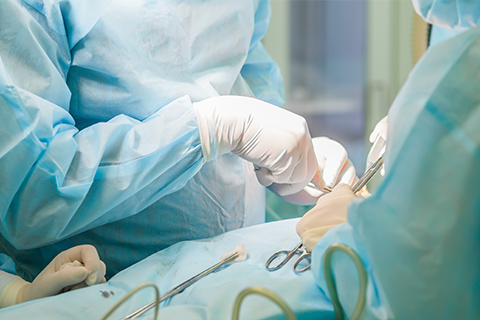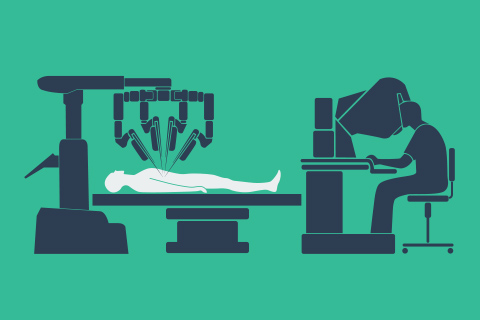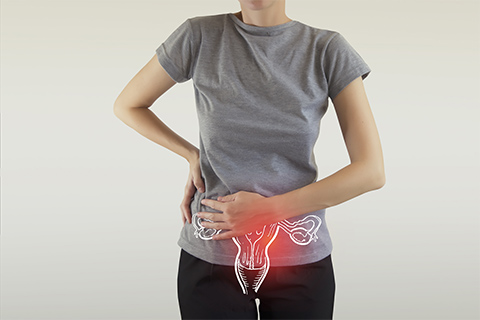Guide for Surgical Patients
Instructions and expectations for surgical patients at Ob/Gyn of Atlanta.

Two Weeks Prior to Surgery
Schedule pre-operative testing. This testing should be completed no later than 3 days prior to the date of surgery to ensure the results are current. This testing will help to ensure that we have not overlooked any serious medical conditions which may complicate surgery. Pre-‐ operative testing may consist of a chest x-‐ray, routine blood testing, and an ECG (electrocardiogram, an electrical map of your heart).
Maintain a healthy lifestyle.
- exercise regularly
- eat nutritious healthy meals
- drink plenty of water
- rest
STOP taking any aspirin products, like Motrin (Ibuprofen), Alleve (Naproxyn Sodium) or related non-‐steroidal anti-‐inflammatory drugs. They increase your chance of excess bleeding during surgery.
STOP SMOKING. If you need assistance, contact your doctor for supervised smoking cessation aids.
One Week Prior to Surgery

STOP taking most herbal supplements. These supplements are believed to be detrimental to your pre-‐surgery health including: St. John’s Wort, the now illegal ephedra or Ma Huang, kava kava, licorice, pennyroyal, germander, chaparral, borage, coltsfoot, comfrey, life root, sassafras, aristolofchia fangchi.
STOP taking supplements that act as blood thinners or increase the chance of excessive bleeding during surgery including: ginko biloba, garlic, gensing, dong quai, willow, red clover.
STOP taking Vitamin E before surgery because it too can increase the risk of bleeding during surgery.
Two Days Prior to Surgery

ABSOLUTELY NO alcohol or alcoholic beverages during the 48 hours prior to surgery and for 48 hours following surgery. Alcohol can have serious consequences on the surgery as well as the anesthesia.
The Day before Surgery
Follow a clear liquid diet with lots of water. NO milk products.
For some procedures, your doctor MAY recommend medications to completely empty the bowels.
After Midnight the night before surgery, DO NOT EAT OR DRINK ANYTHING.
This even includes water, chewing gum, and lifesavers.
The Day of Surgery

You may, and probably should, take any of these if they are currently prescribed to you (with a small sip of water):
- Heart Medication
- Blood Pressure Medication
- Anti-‐Seizure Medication
- Insulin (only take HALF of your normal dose)
DO NOT take Water Pills, Diabetic Pills -‐ in addition to anything you have previously stopped taking in preparation for surgery. Remember this includes Aspirin, Motrin, Coumadin and Warfarrin.
What to Exprect after Surgery
Surgery time varies from about 1 to 2 hours for simple cases, to 4-‐5 hours for more complex cases. We will stay in touch with your family during the surgery and meet with them in person after the case is finished.
Patients are encouraged to walk and eat regular foods the day of surgery, as tolerated.
Medications for pain, nausea and bloating are given through the IV, or by mouth.
Most patients spend about 1 to 2 hours in the post-‐ surgical recovery unit. If an overnight stay is needed, they are then transferred to our post-‐ operative floor.
When “open procedures” are performed using larger abdominal incisions patients usually stay in the hospital for 2 additional days after the day of surgery.
For less invasive procedures recovery nurses have protocoled instructions that allow them to discharge patients the following day provided they meet certain previously established criteria.
On discharge, we will send you home with a prescription for the medications that have worked well for you in the hospital. If there is any problem with these medicines, please call our office.
Because of both the anesthesia and the surgery, the intestines are often slowed after surgery. This results in mild to moderate bloating lasting for several days. Anti-‐gas medications, stool softeners, like Colace, and frequent walking will help to minimize the duration of discomfort.
After laparoscopic surgery and Robotic surgery bloating is common. Gas is used to expand the abdomen during surgery. Bloating and shoulder pain are common after surgery and last until the gas is fully absorbed, which for most patients takes 4 days.
After minimally invasive and robotic surgery, there is no need for bed rest at home. Patients will have some discomfort and increased fatigue, but should try to stay active, walking slowly and often – increasing walking times as they are able.

Patients should eat a healthy diet and drink lots of water to speed healing.
Try to get plenty of sleep each night. Patients often discontinue pain medications in the first week after surgery, but taking these before bedtime can increase comfortable sleeping time.
Avoid straining and lifting objects that weigh more than 20 pounds.
Most patients can drive 4 days after surgery provided they are not using narcotic pain medications.
Our team will instruct you on when to return for a postoperative check up. Usually, 3 weeks after surgery.
Most patients can return to work in about 2 weeks.
If your work involves heavy lifting or other strenuous activity, it is best to wait 6 weeks.
Initially sex may be uncomfortable after surgery. If the cervix IS NOT removed then a patient may be asked to abstain from sex for 3 weeks. If the cervix IS removed, please abstain from sex for the first 6 to 8 weeks to allow time for healing of the vagina. Your doctor will perform a gentle exam at 3 to 6 weeks to ensure vaginal healing is complete.
In general, post surgical discomfort, nausea, and bloating should decrease each day. If pain worsens, becomes severe, fever develops, or bleeding from the vagina or the incisions is noted, call our office right away. After hours the operator can page a member of our on-‐call team.
Our Locations
- NORTHSIDE OFFICE
 404-252-1137
404-252-1137
- EAST COBB OFFICE
 404-252-1137
404-252-1137
- JOHNS CREEK OFFICE
 404-252-1137
404-252-1137
- NORTHSIDE FORSYTH OFFICE
 404-252-1137
404-252-1137
Let's stay in touch
Our monthly newsletter keeps you up-to-date on healthy lifestyle, latest news, and our practice.




